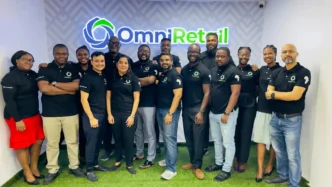Poppins, a French startup focused on improving care for children with dyslexia, has raised €5 million in its third funding round. This investment was led by Racine2, the impact investment fund of MGEN, and backed by previous investors such as Bpifrance, Eurazeo, and Kurma Partners. With this new funding, Poppins has now raised a total of €20 million since its inception.
Poppins Addressing Dyslexia Care Challenges
In France, approximately 1.3 million children are affected by dyslexia, representing 6-8% of the student population. This translates to about two dyslexic children per classroom, yet there are only 25,000 speech therapists available, with wait times for initial assessments stretching from 12 to 24 months.
Poppins seeks to alleviate this gap by offering a home-based support solution that complements traditional speech therapy. Using a video game-style app, Poppins enables children to practice and improve their language and rhythm skills, with the aim of enhancing their daily abilities. While it doesn’t replace healthcare professionals, Poppins provides an innovative way to support children in their rehabilitation journey.
The €5 million investment will help Poppins integrate its app into existing care pathways for dyslexic children. Specifically, it will support the Level 1 care referrals for intensive intervention, working alongside traditional speech therapy to ensure children stay engaged in their treatment.
Poppins’ goals align with the National Strategy for Neurodevelopmental Disorders (2023-2027), which aims to speed up intervention access and reduce the negative impact of long wait times on children’s academic and psychological well-being.
By 2025, Poppins aims to be a mission-driven organization focused on societal impact, striving to improve the accessibility and effectiveness of dyslexia care.
A Groundbreaking Medical Device
Founded in 2018 by François Vonthron and Antoine Yuen, Poppins is based on 7 years of scientific research and collaboration with leading experts. The medical device offers a structured training protocol through 31 game-based exercises designed to improve written language and rhythm. These exercises are accessible on smartphones and tablets, allowing children to practice at home.
Clinical trials, including a randomised, double-blind, placebo-controlled study, have shown the effectiveness of Poppins in treating dyslexia. The company’s solution is a breakthrough in care, enabling frequent and regular interventions at home, which are essential for managing neurodevelopmental disorders like dyslexia.
Poppins is the result of extensive collaboration with patient associations and neurological experts such as Prof. Michel Habib from Hôpital de la Timone and Prof. David Cohen from Hôpital de la Pitié-Salpêtrière.
Promising Future Applications
Poppins has already worked with over 6,000 families across France in preliminary studies. Encouraging data from ADHD patients also suggests the potential for future applications of the device in treating other neurodevelopmental disorders.
In addition to integrating into existing care pathways, Poppins is working to gain reimbursement under the French Health Insurance scheme for digital medical devices (PECAN). This will make the app more accessible to families and reduce out-of-pocket costs.
The app’s monthly subscription fee of approximately €30 is increasingly covered by employers and health insurance companies. Some of these include MAE, Allianz France, Abeille Assurance, and Radio France, showing growing support for Poppins and its impact on dyslexic children’s lives.
Eric Gossart, Partner at Serena, emphasized the public health importance of improving care pathways for children with learning disorders. “Learning disorders affect 8% of young people. The consequences on academic success, mental health, and professional integration highlight the need for early, intensive support,” Gossart said. “Racine2 is proud to support Poppins in its mission, which has a strong societal impact.”













